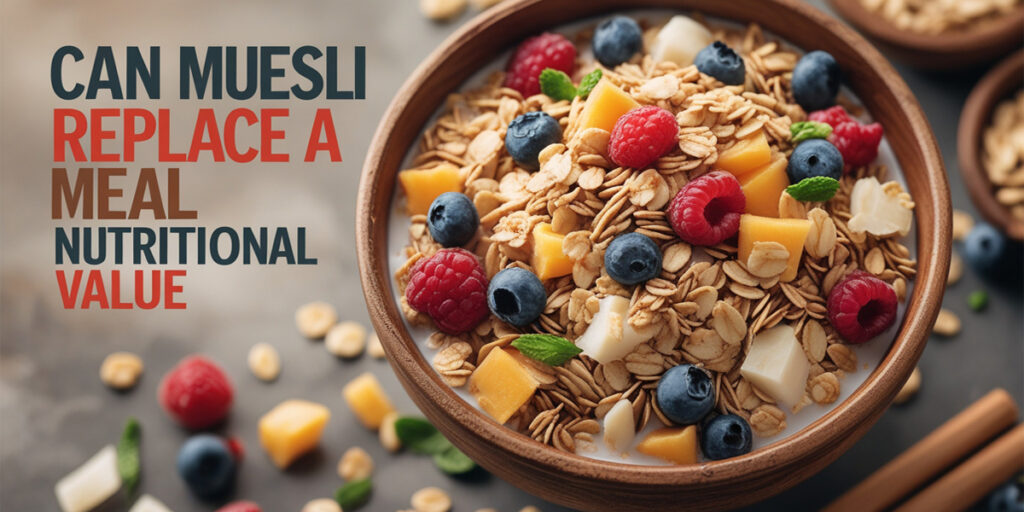Muesli has gained immense popularity as a healthy breakfast choice, but can it replace a full meal? With its mix of whole grains, nuts, seeds, and dried fruits, muesli is packed with essential nutrients. However, whether it can serve as a complete meal depends on its ingredients and how you consume it. In this article, we’ll explore the nutritional value of muesli and whether it’s suitable as a meal replacement.
Understanding Muesli’s Nutritional Profile
Muesli is a combination of rolled oats, nuts, seeds, dried fruits, and sometimes added sweeteners or dairy. It is high in fibre, protein, healthy fats, and essential vitamins and minerals. Let’s break down the key nutrients:
- Carbohydrates: The oats and dried fruits in muesli provide complex carbohydrates, giving you sustained energy.
- Protein: Nuts and seeds add a good amount of protein, which is essential for muscle repair and satiety.
- Fiber: Muesli is rich in dietary fiber, promoting digestion and keeping you full for longer.
- Healthy Fats: Nuts and seeds offer heart-healthy fats like omega-3 and omega-6 fatty acids.
- Vitamins & Minerals: Ingredients like almonds, raisins, and sunflower seeds provide important nutrients such as iron, magnesium, and vitamin E.
Can Muesli Replace a Meal?
Muesli can be a great meal replacement, but it depends on how it is prepared and consumed. Here’s when muesli can serve as a full meal:
- Balanced Macronutrients – If you pair muesli with protein-rich dairy (like Greek yogurt or milk) and healthy fats (such as nuts or seeds), it becomes a well-balanced meal.
- Portion Control – A serving of muesli should be around 50-70g, but this may vary depending on individual calorie needs.
- Added Protein Sources – If you’re using muesli as a meal replacement, consider adding extra protein like whey protein powder or nut butter to make it more filling.
- Meal Timing – Muesli is ideal for breakfast or a light meal, but for heavier meals like lunch or dinner, it might need additional components such as fresh fruits or eggs for extra protein.
Benefits of Eating Muesli as a Meal Replacement
- Quick and Convenient – No cooking required, making it a great option for busy mornings.
- Supports Weight Management – The fibre and protein content keep you full, reducing hunger cravings.
- Improves Digestion – High fibre content aids digestion and promotes gut health.
- Sustained Energy – Provides long-lasting energy due to its complex carbs and healthy fats.
Potential Downsides of Using Muesli as a Meal Replacement
- Lack of Complete Protein – Unless paired with dairy or additional protein sources, muesli alone may not provide sufficient protein.
- Added Sugars – Some store-bought varieties contain added sugars, which can lead to unwanted calorie intake.
- Lower Satiety for Some People – Depending on your metabolism and activity level, muesli alone might not keep you full as long as a traditional meal.
Conclusion
Muesli can replace a meal if consumed in the right way. It works best as a breakfast or light meal, provided it includes adequate protein, fibre, and healthy fats. For those with higher calorie needs or looking for a more substantial meal, adding extra protein and fresh fruits can make muesli a complete, nutritious choice.
Aap Ka Bazar®, a monthly grocery app, website, and chain of stores, has gathered this information, including nutritional values, through online research and writing tools. #yahasabmilega



